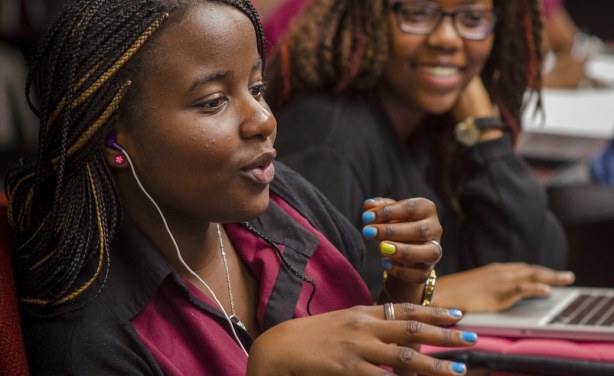
By Mary Olushoga, AWP Network
In cultures that equate success with higher education, how can you foster wider entrepreneurship? Mary Olushoga, AWP Network founder, describes how a business plan competition backfired and what the real lessons are to encourage innovation.
What will it take to change Nigeria’s culture that discourages entrepreneurship at an early age? Last year, we trained students at Lagos State Model College, Meiran in Nigeria on how to write business plans and pitch business ideas with a competition. Out of the 300 entries, the panel of judges selected three ideas to provide seed funding and connect students to existing innovation hubs to make viable products. Well, the winners received the funds, but instead of continuing to work on their ideas, they gave the money to their parents for “safe-keeping.” The students put their entrepreneurial ideas on hold to focus on completing their education. Why can’t both endeavors happen simultaneously? The intense cultural emphasis on education or the ingrained idea that success means completing a degree is hampering innovation.
I shudder to think: what if Michael Jackson did not start producing music until he completed a Master’s degree program at 25? What about Mark Zuckerberg, whom many young Nigerians admire so much as seen from his recent visit to Lagos and Abuja? The truth of the matter is that many young Nigerians are discouraged from entrepreneurship until after higher education, then are confronted with an unfavorable job market. It is then that entrepreneurship is explored as an alternative. Entrepreneurship needs to be nurtured and fostered, not only practiced in survival mode.
In the United States alone, Census data recognizes Nigerians as the most educated immigrant group. Nigerians are amongst the top doctors, nurses, lawyers and engineers in the diaspora. However, we lag behind when it comes to startups, because we are risk averse. Despite infrastructural challenges, business education and entrepreneurial ideas ought to be fostered early on.
Certainly, Nigeria is best described as an emerging economy. Peter Thiel and Mark Zuckerberg don’t yet exist for us. But we do have a few successful innovators who can inspire our youth. It is important that parents encourage innovation so that it becomes ingrained, not as an alternative, but as a path to economic freedom. This is not an easy task. It also does not mean that entrepreneurship equates to street hawking or that parents will raise an “out of school” child. Both processes can and should co-exist.
Parents should not wait until after postsecondary school and their children are confronted with a job where the company never pays salaries on time. A young person can take risks. Schooling should be a worthwhile experience. Primary and secondary schools should establish innovation labs to encourage students to become more entrepreneurial. The school and the child could come up with a revenue sharing model should a student’s product become viable. The private and public sectors can work with schools to strengthen curriculum, establish a student-focused innovation or business plan contest for primary and secondary school students. The future lies with our youth. We need to do more to encourage, support and foster what some may dismiss as “naïve” business ideas early on.
Mary Olushoga is founder of awpnetwork.com, a platform powering small business success for African entrepreneurs. The AWP Network is proudly recognized as one of the leading organizations supporting African Women in Technology.

